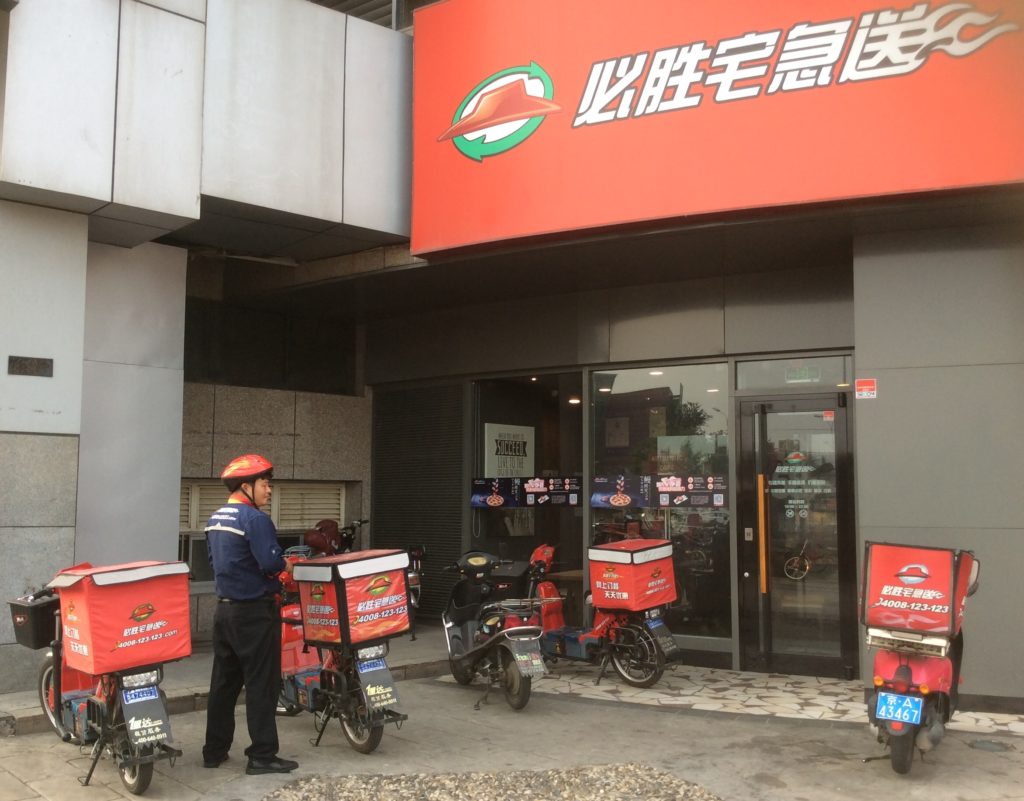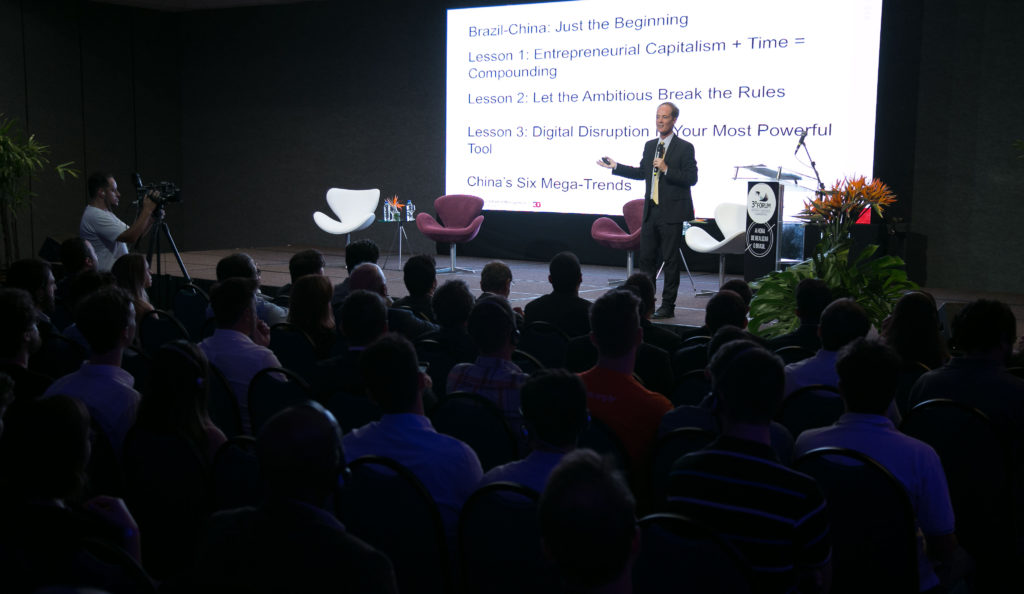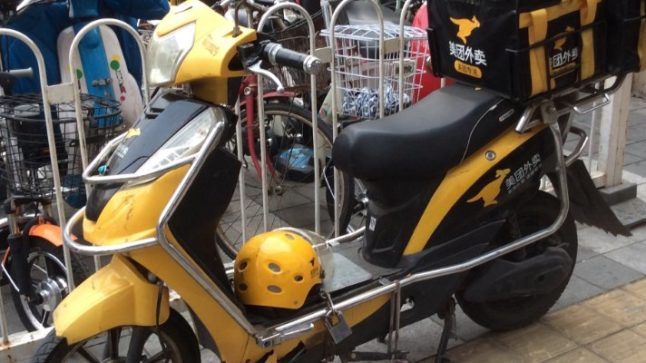So Meituan has gone public. And this is after Chinese O2O food delivery company Baidu Waimai was sold to competitor Ele.me. Basically, the space is now dominated by two companies: Ele.me (Alibaba-owned/backed) and Meituan Waimai (Tencent-owned/backed).
I think food delivery symbolizes three big trends happening.
Trend 1: Convergence is continuing.
China’s internet giants (Alibaba, Tencent and Baidu) are continuing to move into each others’ spaces. They are converging – and this is a big change from a few years ago when Tencent mostly stayed in gaming (and messenging), Alibaba mostly stayed in e-commerce, and Baidu stayed in search. Now they are converging. Baidu wants to get into e-commerce. Tencent wants to get more into transactions. And Alibaba wants to go international and get into entertainment. And so on.
China’s Internet elephants are increasingly rubbing up against each other. And this “elephant bumping” has interesting consequences. The white spaces between them are disappearing. Smaller companies are finding it increasingly difficult to live in these spaces. And as Alibaba and Tencent now dwarf Baidu in market cap, Baidu’s exit from food delivery looks like a smaller elephant that got tired of being squished between the much bigger ones.
Another important aspect of this convergence is how these big companies are jumping into areas that are outside of their core competence. Baidu, a search engine, is jumping into delivery and AI. Tencent, a gaming company, is jumping into on-demand transportation and feature films. Alibaba, an e-commerce company, is jumping into cloud computing. And so on.
This jumping behavior does change the competitive dynamics of these industries. And it reveals a lot about differing levels of management ability at these companies. Tencent, in particular, seems very good at jumping out of its core expertise and succeeding in totally new areas. Baidu has less of a track record at succeeding in unrelated businesses.
Trend 2: China-specific solutions are increasingly important.
China O2O food delivery created an army of delivery people on scooters. They race around the streets, alleys, parks and sidewalks. They congregate outside store fronts and subways (see photo below). This was a pretty new thing in the world, at least on this scale.
Mobike and Ofo similarly pioneered bike-sharing, with its unique smart locks and non-inflatable, solid rubber tires. Didi Chuxing pioneered taxi-hailing in coordination with local governments. And Tencent pioneered micro-payments, which are increasingly being used in online videos and other places.
What all of these have in common is that they are very China-specific solutions. They targeted China-specific problems and came up with pretty novel solutions to them. This is an important trend. We are increasingly seeing Chinese Internet companies pioneering China-specific solutions – and at very large scale. One nice thing about China is that the market is so big that creative solutions in small niches can be very big businesses. Look for more of these China-specific innovations, especially when it relates to Chinese consumers.
Lesson 3: The Chinese Internet is prone to money wars.
The online delivery business that Baidu just exited has been notorious for its brutal money war. The leading companies have been subsidizing the business and offering customers lower prices to gain market share. And, unsurprisingly, the larger companies that can raise capital in larger amounts (and more cheaply) tend to win these money wars over time. Baidu’s decreasing ability to compete with much larger Tencent and Alibaba in this way is something important to note.
 Most large restaurant chains in China are now expanding in direct delivery. (photo by Jeff)
Most large restaurant chains in China are now expanding in direct delivery. (photo by Jeff)
These “money wars” do tend to happen a lot in the Chinese Internet. They have happened in online travel sites, ride-sharing, O2O delivery and other sectors. Kuaidi vs. Didi and Didi vs. Uber China were particularly spectacular examples of this.
This is not limited to the Internet but it does seem to happen more there (or at least it gets more publicly). This could be from the sexier nature of Internet companies (and their ability to raise capital). It could also be from “winner take all” economics of many platform and software businesses (such as Didi and Meituan). But I expect these money wars to continue as a common strategy for market leaders.
***
A final point. China’s propensity for money wars probably accelerates another trend, which is the consolidation of certain parts of the Internet space. As user growth slows, customer acquisition and retention costs usually increase. The fight for an open, growing market is replaced by a fight to steal customers from competitors. Many smaller companies find they can’t afford to play this game and merge or get bought. So you get naturally get consolidation. The money wars probably accelerate this. For example, O2O food delivery in China is now dominated by just two companies.
Ok. That’s my take on this.
Thanks for reading, jeff
——-
I write, speak and consult about how to win (and not lose) in digital strategy and transformation.
I am the founder of TechMoat Consulting, a boutique consulting firm that helps retailers, brands, and technology companies exploit digital change to grow faster, innovate better and build digital moats. Get in touch here.
My book series Moats and Marathons is one-of-a-kind framework for building and measuring competitive advantages in digital businesses.
Note: This content (articles, podcasts, website info) is not investment advice. The information and opinions from me and any guests may be incorrect. The numbers and information may be wrong. The views expressed may no longer be relevant or accurate. Investing is risky. Do your own research.

Photos by Jeff

